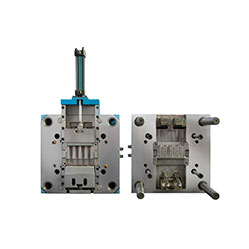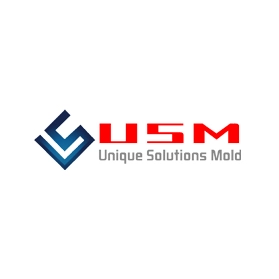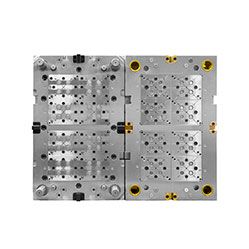Controling method of plastic injection mold temperature
Except for heat radiation and heat convection from the mold, most of the heat bring into the mold by the plastic needs to be taken out of the mold by the circulating heat transfer medium by heat conduction. Heat transfer media include water, oil and beryllium copper, etc, sometimes aluminum alloys are also used.
The mold temperature is generally controlled by adjusting the temperature of the heat transfer medium and adding heat insulation boards and heating rods.
Lower mold temperature is generally achieved by passing warm water (about 25°C) to cavity and "frozen water" (about 4°C) to core, when the gate of the heat transfer medium, that is the cooling water gate cannot pass through certain parts, materials with higher heat transfer efficiency (such as beryllium copper, etc.) should be used to transfer the heat to the heat transfer medium.
To increase the mold temperature, it is generally achieved by passing hot water and oil into the cooling water gate, when the mold temperature is high, we can use an electric heating rod to heat it, for molds that need to be heated, in order to prevent heat loss due to heat conduction, a resin insulation board should be added to the mold panel.

In the hot runner mold, the temperature of the runner plate is required to be high, and it must be heated by a heating rod. In order to avoid the heat of the runner plate from being transferred to the cavity, which causes difficulty in cooling the cavity, the contact surface with the cavity should be minimized during design and use heat insulation sheet to insulate.
In many cases, injection molds need to be cooled, and the main way of cooling is to process cooling water gates in the mold, the main forms of cooling water channels are: straight-through water gates, circular water gates, heat-conducting water gates, diaphragm water gatesls, spiral water gatess and jet water gates. most molds are cooled by straight-through water gate in actual design, when the plastic parts shape is special, they are mostly cooled by a combination of straight-through water gates and other cooling water gates.

Factors should be considered when designing a temperature control system:
1. The wall thickness, projected area and structural shape of the molded plastic part;
2. Production batch of plastic parts;
3. The property of molded plastics;
4. The size and structure of the mold, and the insert parts;
5. The gate type and hot runner layout.

Gas-assisted injection molding product defects and solutions
Apr 28, 2022Common defects and solutions of gas-assisted injection moulding: 1. Gas blows out the melt like in picture 1. Reason: insufficient pre-filled amount. When the plastic part is a locally thickened...view
The principle of mold temperature balance in plastic mold cooling system design
Feb 21, 2022The principle of mold temperature balance: 1. Due to the complexity of the plastic parts and mold structure, it is difficult to make the temperature of the mold completely consistent, but should be...view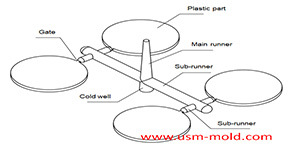
Design principles of plastic injection mold runner system
Jan 6, 20221. Quality first The design of the gating system has a big influence on part quality, firstly the gate should be set at the easiest part of the plastic part to be removed, and at the same time, the...view_20250317090912A017.jpg)
Several common process of water-assisted injection molding introduction
May 24, 2022According to the design of the injection molding machine and the casting system, the corresponding melt-returning process of water-assisted injection molding can be roughly divided into two types: the...view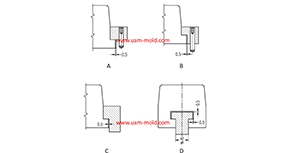
The T slot of slider and guider designing tips
Dec 18, 20231. The T slot of slot should be designed according to the picture 1, If there is a relatively high slider, the slider T slot is not high enough which will cause the center of gravity to be unstable,...view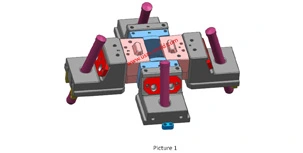
Slider designing tips 2
Nov 22, 20239. The molding parting surface of the slider molding should be made as a shut-off surface as possible, and the width of the shut-off part should be at least 8mm, and do not make a shut-off surface;...view
 English
English русский
русский

